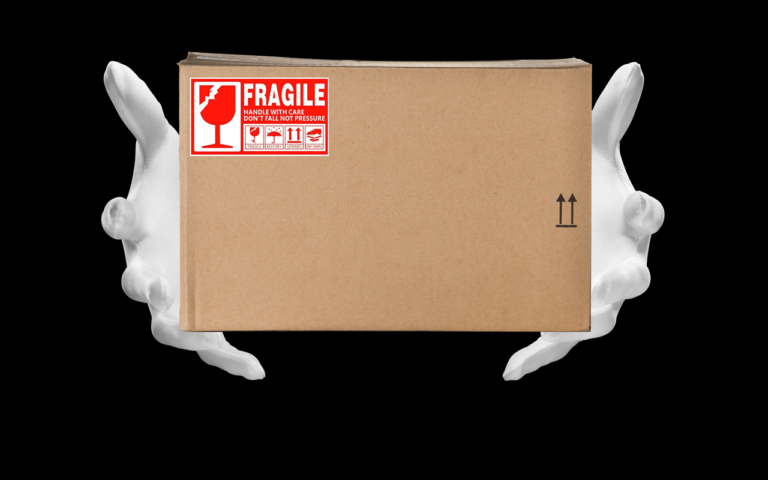Blog
No Deal Brexit: A Nightmare for European Logistics?
Oct 14, 2019
6 mins read

- Why is Brexit happening?
- Deal Vs No Deal Brexit
- How will industries be affected?
- Impact of a No Deal Brexit on European Logistics
Brexit has been a sensational controversy for a long time now but long-delayed for several reasons. However, D-Day is approaching soon. The much-awaited divorce between the UK and the EU is scheduled to take place at 23:00 GMT on the 31st of October, making the Halloween of 2019 even more eventful.
Brexit marks the scheduled exit of Britain from the European Union, the economic and political union involving 28 European countries, with its own bureaucracy and legislative body – the European Parliament.
Why is Brexit happening?
There are three prime reasons why a majority of Britons wanted the UK to leave the EU: economic, immigration, and identity.
Economic: Britain sends money to the EU headquarters in Brussels, which gets redistributed among the other member nations and most Britons find it unfair.
Immigration: Any citizen from the EU nations can freely move to Britain and work there without a work visa, which means more immigrants in Britain using up the country’s scarce resources.
Identity: Britain never really considered itself to be European, and has always sought an individual identity, just like the USA where it can form its own laws and regulations.
This led to a referendum on 23rd June 2016 to decide whether Britain should leave the EU or remain. With more than 30 million people voting, 17.4 million people voted for Brexit.
Deal Vs No Deal Brexit
Following the referendum, the then Britain Prime Minister, Theresa May initiated “The Deal”, a withdrawal agreement that states the relationship between the UK and EU after Brexit.
The Brexit Deal defines the rights of the EU citizens in the UK and British citizens in the EU, the amount to be paid by Britain to the EU for the Brexit (approximately £39 billion), the Northern Ireland backstop and other Brexit specific laws, disputes and rules.
The British Parliament, however, rejected the Brexit deal, adding up to the chaos. Nevertheless, come what may, the UK must leave the EU on 31st October. If Britain and the EU cannot find a settlement by then, the UK will have to exit without the deal.
How will logistics industries be affected?
Brexit is the biggest event in the history of Europe and will most certainly affect operations in several industries in the UK and Eurozone, reshaping the economy in a catastrophic way. With the prospects of a No-Deal Brexit looking stronger, businesses in retail, food supply, warehousing, transportation, and many others are preparing for the consequences beforehand.
While the no-deal Brexit threat is causing a panic buying behavior among the masses, it is also forcing businesses to stockpile goods and resources, arrange for bigger and better storage spaces, especially for frozen and chilled products, fresh produce like fruit, vegetables, milk, cheese and wine. Businesses are also trying to find alternative supply routes to ensure smooth delivery between borders.
Impact of a No Deal Brexit on European Logistics
The EU allows free and frictionless movement of goods, services, capital, and people within its borders, also known as the “four freedoms”, or “single market”. If Britain leaves the EU without the deal, it will also have to leave the single market and customs union causing major ripples in the European logistics sector. James Hookham, Deputy CEO of Freight Transport Association and head of Brexit Readiness says “Logistics businesses need to take the prospect of a No Deal Brexit seriously.”
Imports and Exports
Currently, goods and services can be freely traded between the UK and EU member states. A No-Deal Brexit will make Britain a third party for import/export activities in Europe. Consequently, the zero-tariff trade law of the EU will no longer stand valid for Britain. The UK’s trade with the EU will operate on non-preferential, World Trade Organization (WTO) terms. VAT and customs duty will be charged normally on goods leaving the EU borders for the UK and vice versa.
Strict Border Controls and Checks
It would also lead to tighter border controls and stricter inspection of vehicles, including trucks, Ro-Ro freight, and cargos coming from Britain to the eurozone or from the EU to the UK. Vehicles that can now continue their journeys straight off on these borders will instead have to wait for custom checks and even detailed cargo inspection at ports like Dover or Rotterdam.
Transport and Travel Delays
Free movement of goods and people would no longer be a benefit for the UK in the eurozone. UK citizens traveling to or from the EU will have to go through immigration checks at EU borders, leading to longer journey times. Increased controls at airports, ports and EU roads will also delay the movement of freight between the borders. Reportedly, there could be 48-hour delays at Dover port alone. This could lead to traffic bottlenecks, disrupting supply routes significantly.
Shipping and Transport Costs
Post-Brexit, it will be difficult for people in the EU countries to migrate to Britain. This could cause a lack of labor availability, especially commercial drivers, thereby increasing transport wages remarkably. At the same time, if import/export taxes and customs duties are levied on goods crossing the borders, it would also increase shipment costs, rising the overall logistics operation costs for businesses.
Demand and Supply Fluctuations
The possibility of a no-deal Brexit seems to be pretty high, already creating a lot of panic among residents across the eurozone. Citizens are fearing a shortage of goods and are stocking up their supplies beforehand. About 79% of the food imported in UK supermarkets is from the EU, and it is likely that retailers and supermarkets could run short of some products. This could, in turn, affect logistics service providers adding pressure to fulfill customer demands, despite the Brexit crunch.
The UK-EU supply chain is as complex and interconnected as Brexit itself. Logistics and shipment companies across Europe and Britain are preparing themselves for the likely no-deal Brexit, revisiting logistics strategies, partnering with free circulation facilities and embracing technology like route optimization to maintain smooth operations. Will Britain leave the EU with or without the deal? Only time will tell, but preparing for a no-deal Brexit is the best idea for European logistics and supply chain businesses.
Locus can help you get Brexit ready and redefine your logistics strategy with expert logistics consulting.
Related Tags:

3PL
What if the Oil Slipped?
The potential aftermath of Saudi Arabia attacks on world logistics. On Saturday, September 14, 2019, Saudi Arabia faced drone attacks at two major oil production facilities – Abqaiq and Khurais, run by state-owned Saudi Aramco. The attack crippled the world’s largest crude oil processing plant cutting down output by 5.7 million barrels per day (BPD), […]
Read more
3PL
White Glove Services: Everything You Need to Know
The tremendous growth of e-commerce has redefined the meaning of luxury among consumers worldwide. It is no longer defined by the monetary value of goods but by the unique, exclusive experience associated with buying something. In e-commerce, this luxury experience is characterized by convenience, speed and some kind of emotional fulfillment. While the modern customer […]
Read moreMOST POPULAR
EDITOR’S PICKS
SUBSCRIBE TO OUR NEWSLETTER
Stay up to date with the latest marketing, sales, and service tips and news


No Deal Brexit: A Nightmare for European Logistics?